Search
Remove Ads
Advertisement
Summary
Loading AI-generated summary based on World History Encyclopedia articles ...
Search Results
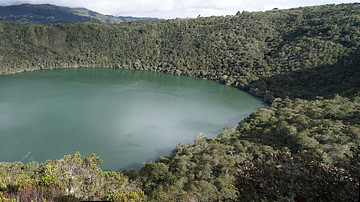
Image
Lake Guatavita, Colombia
Lake Guatavita (Spanish: Laguna de Guatavita), Cundinamarca, Colombia. The site of the Muisca tribe ritual and the birthplace of the myth of El Dorado. One of the most important sites in South America.
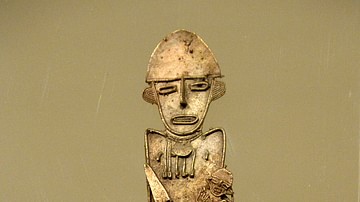
Image
Tunjo, Female & Child Figure from Colombia
A female figurine holding a small child on her chest and a dagger in her right hand. A material of religious significance, the flat gold figures (or Tunjos), were votive offerings left in caves or lakes. They were rarely found inside tombs...

Definition
El Dorado
El Dorado ('Gilded Man' or 'Golden One') referred to the legendary kings of the Muisca (Chibcha) people who populated the northern Andes of modern-day Colombia from 600 to 1600. The name derives from the coronation ritual when the new king...
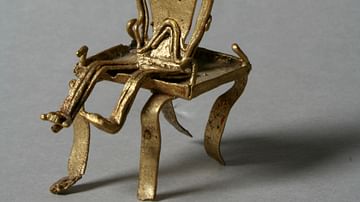
Definition
Muisca Civilization
The Muisca (or Chibcha) civilization flourished in ancient Colombia between 600 and 1600 CE. Their territory encompassed what is now Bogotá and its environs and they have gained lasting fame as the origin of the El Dorado legend. The Muisca...
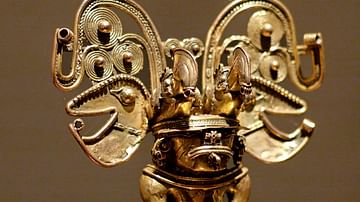
Definition
Tairona Civilization
The Tairona civilization - one of the Chibcha family tribes - flourished in northern Colombia between 200 CE and 1600 CE. Like the Muisca of Cundinamarca, the Tairona were known for their expertise in crafting and metallurgy, especially goldsmithing...

Video
Beyond El Dorado: Power and gold in ancient Colombia
For centuries Europeans were dazzled by the legend of a lost city of gold in South America. A new exhibition at the British Museum reveals the truth behind the myth. For more video content from The Economist visit our website: http://econ.st/1f3YQtP...
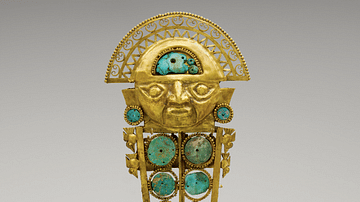
Article
The Gold of the Conquistadors
The staggering quantity of gold the conquistadors extracted from the Americas allowed Spain to become the richest country in the world. The thirst for gold to pay for armies and gain personal enrichment resulted in waves of expeditions of...
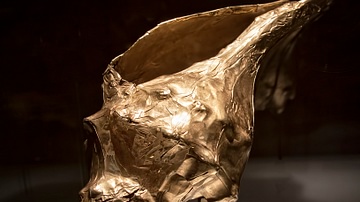
Image
Colombian Gold Snail Shell
Gold snail shell, 100 BCE - 1000 CE. Restrepo, Valle del Cauca, Colombia. 14,8 x 30 cm (5.8 x 11.8 inches). Museo del Oro / The Gold's Museum (Bogota, Colombia).
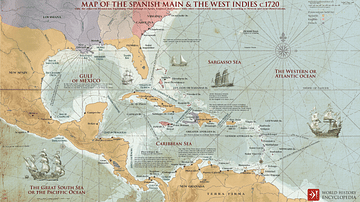
Definition
Spanish Main
The Spanish Main refers, in its widest sense, to the Spanish Empire in the Americas from Florida in the north to the northern coast of Brazil in the south, including the Caribbean. The term was initially more limited and referred only to...
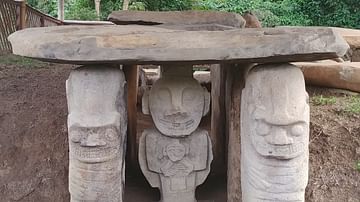
Article
The Megalithic Funerary Art of San Agustín
Beginning approximately 2000 years ago, in a rugged stretch of southwestern Colombia where the Andes split into multiple ranges and the mighty Magdalena River is born, a people created a collection of magnificent ritual and burial monuments...